Critical Approaches to
African Cinema Discourse
Critical Approaches to
African Cinema Discourse
Edited by Nwachukwu Frank Ukadike
LEXINGTON BOOKS
Lanham Boulder New York Toronto Plymouth, UK
Published by Lexington Books
A wholly owned subsidiary of Rowman & Littlefield
4501 Forbes Boulevard, Suite 200, Lanham, Maryland 20706
www.rowman.com
10 Thornbury Road, Plymouth PL6 7PP, United Kingdom
Copyright 2014 by Lexington Books
All rights reserved. No part of this book may be reproduced in any form or by any electronic or mechanical means, including information storage and retrieval systems, without written permission from the publisher, except by a reviewer who may quote passages in a review.
British Library Cataloguing in Publication Information Available
Library of Congress Cataloging-in-Publication Data
Critical approach to African cinema discourse / Nwachukwu Frank Ukadike [editor].
p. cm.
Includes bibliographical references and index.
ISBN 978-0-7391-8093-8 (cloth) ISBN 978-0-7391-8094-5 (electronic)
1. Motion picturesAfricaHistory and criticism. 2. Motion picturesStudy and teaching (Higher)Africa. 3. AfricaIn motion pictures. I. Ukadike, Nwachukwu Frank, editor of compilation.
PN1993.5.A35C85 2014
791.43096dc23
2013046980
 TM The paper used in this publication meets the minimum requirements of American National Standard for Information Sciences Permanence of Paper for Printed Library Materials, ANSI/NISO Z39.48-1992.
TM The paper used in this publication meets the minimum requirements of American National Standard for Information Sciences Permanence of Paper for Printed Library Materials, ANSI/NISO Z39.48-1992.
Printed in the United States of America
Acknowledgments
The idea to compile provocative articles dealing with important aspects of African cinema discourse has nudged at me since my first major publication, Black African Cinema, came out in 1994. But I would not have been able to carry through with it if not for the opportunity that came in 1995 when Dudley Andrew invited me to guest edit a special issue of IRIS: A Journal of Theory of the Image, titled New Discourses of African Cinema. In that issue, contributors examined the relationship between African cinematic discourse and questions about the dominant mode of representation and scholarship, and reflected upon the larger question of whether African cinematic discourse is at the crossroads. This question even looms larger today given the explosive trends in African cinema with the advent of Nollywood and all the other woods within African film practice.
This book is an offshoot of that special issue of IRIS, to which I am most indebted, and the quest to accommodate these new trends. I wish to thank the following institutions and persons for their support. I am grateful to the School of Liberal Arts and the Provosts Office of Tulane University for granting me several research funds, including a publication subvention fund for this book from the Deans Office, and the University of Port Harcourt, Nigeria, for granting me the space to complete this project during my sabbatical leave. I am deeply grateful to friends and colleagues for their invaluable support: Jude Akudinobi, for his intellectual camaraderie and steadfast encouragement, especially in the aftermath of Katrina, attendant frustrations and disconcerting legal tussles, Ana Lopez, Senior Associate Provost, and my distinguished colleagues at the Department of Communication, Tulane University, for their unremitting esprit de corps.
Finally, I am grateful to the following journals for granting me permission to use previously published materials: Matatu: Journal for African Culture and Society, for Critical Dialogues: Transcultural Modernities and Modes of Narrating Africa; and Transition: An International Review, for Eddie Ugbomahs interview. Last, but not least, my profound gratitude goes to the contributors for their indefatigable efforts and for their patience waiting it out for years for this project to be resurrected.
Introduction
N. Frank Ukadike
Proliferating African Film Discourse
History
During the pioneering decades of the 1960s and 1970s, African films were deliberately ignored in larger discussions of world cinema. The few mentions of films made in Africa by Africans were made only in passing. In most cases, this reflected a general attitude toward the burgeoning film industries in developing nations. Only some French critics can be singled out for offering any critical awareness of Africas sporadic filmmaking initiatives. However, most of these early writings were in French and often focused on plot summaries and analysis that were devoid of perceptive insights into the ramifications of the cultural codes or the political/ideological underpinnings of the prevailing modes of production. As a result, these early writings did little to promote a deeper understanding of African cinema. At the same time, because there was no serious critical African analysis to fill this void, only a few French journals (e.g., Prsence Africaine, Afrique littraire etartistique, and CinmAction) championed the developing African cinema until an appreciation of this phenomenon began to proliferate. At this point, there has been immense growth in published critical studies of African cinema in English, including books, monographs, journal articles, and works on Nigerian cinema (nicknamed Nollywood), such as dissertations, as well as more special issues of journals devoting spaces to African cinema.
Although these diverse publications attest to progress in African film historiography, they have also functioned as an arena for the acknowledgement of critical canon and the raison detre for promoting dialogic sensitivity toward the growing need for a framework of analysis and critical renaissance stemming from the contradiction and tensions in defining African cinema. Likewise, such diverse discourses are symptomatic of the immanent advancement that has reversed the paucity of scholarship or absence of any mention of African cinematic practices, as was the case in the 1960s and 1970s, with numerous published books on histories of film. Indeed, it is interesting to consider that since the late 1990s, as the scope of African film studies has widened, it has also brought attention to the plethora of critical perspectives informing dialogues as to the adequacy of critical methodologies. In other words, such are the consequences of (re)assessing the canon, and the illumination of African oriented theoretical and critical approaches, the latter view applying to all works concerning African cinematic practices, irrespective of the origin of the writer, filmmaker or producer. So, is it possible for these perspectives to merge as regenerative critical paradigms to assist in a fuller understanding of African cinema?
This book is an offshoot of the special issue of IRIS: A Journal of Theory of the Image, New Discourses of African Cinema (1995) that I guest edited. Therein, contributors examining the relationship between African cinematic discourse and questions about the dominant mode of representation and scholarship, reflected upon the larger question of whether African cinematic discourse is at the crossroads. African cinema is unique in its development and arduous augmentation. Critical and theoretical reflections on the film image started long before the people in sub-Saharan Africa, under the yoke of colonialism, had the opportunity to participate in the production of their own films. This explains why cinema in sub-Saharan Africa has been influenced by conventions and techniques foreign to African cultures, and why, despite having subverted such techniques through the fusion of aspects of cultural codes into narrative structures, African cinema still struggles to unleash and offer itself an autonomous status. Unlike European or American cinema, the roots of African cinema were planted during a time of tremulous resistance and uncertainty as Africans struggled for independence from colonial powers. Decades of oppression, Western control over its media and forms of communication, and the psychological trauma of colonial rule destabilized a plethora of cultural practices, thus creating a damaged image of the African people. The pioneers of African cinema and early African films are thus directly in conjunction with Africas fight for independence and identity as attempted to counter the devastating effects of the stereotypes created by Western colonial ideology and its filmmakers portrayals.
Next page
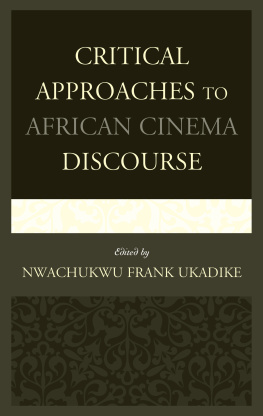

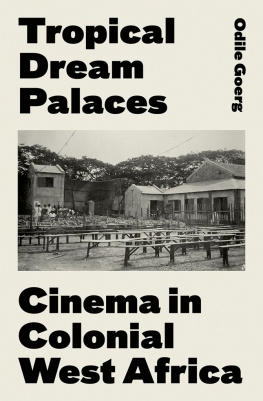

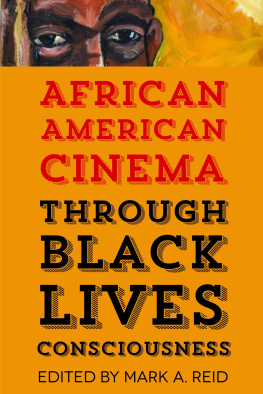
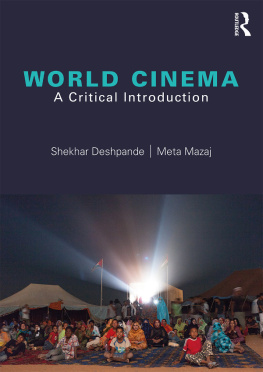
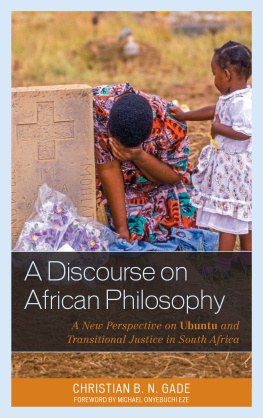
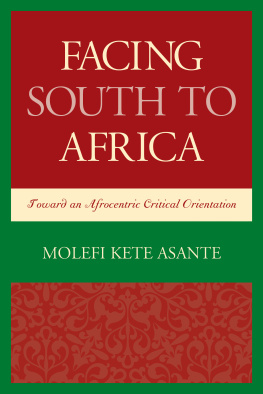
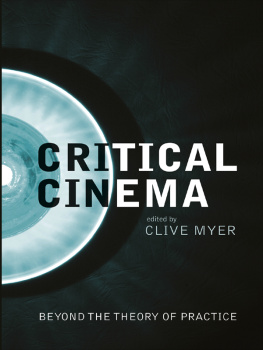
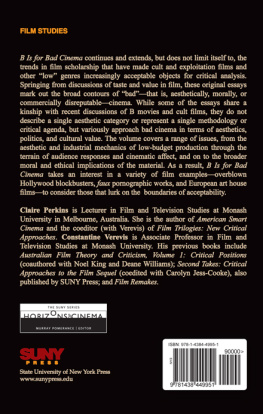
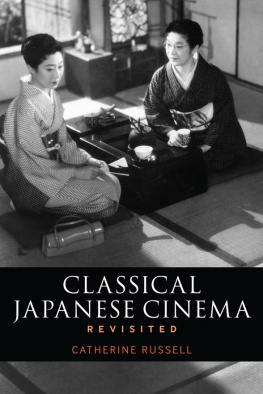
 TM The paper used in this publication meets the minimum requirements of American National Standard for Information Sciences Permanence of Paper for Printed Library Materials, ANSI/NISO Z39.48-1992.
TM The paper used in this publication meets the minimum requirements of American National Standard for Information Sciences Permanence of Paper for Printed Library Materials, ANSI/NISO Z39.48-1992.